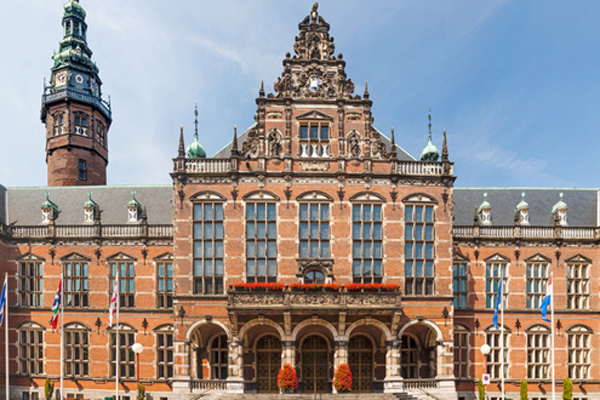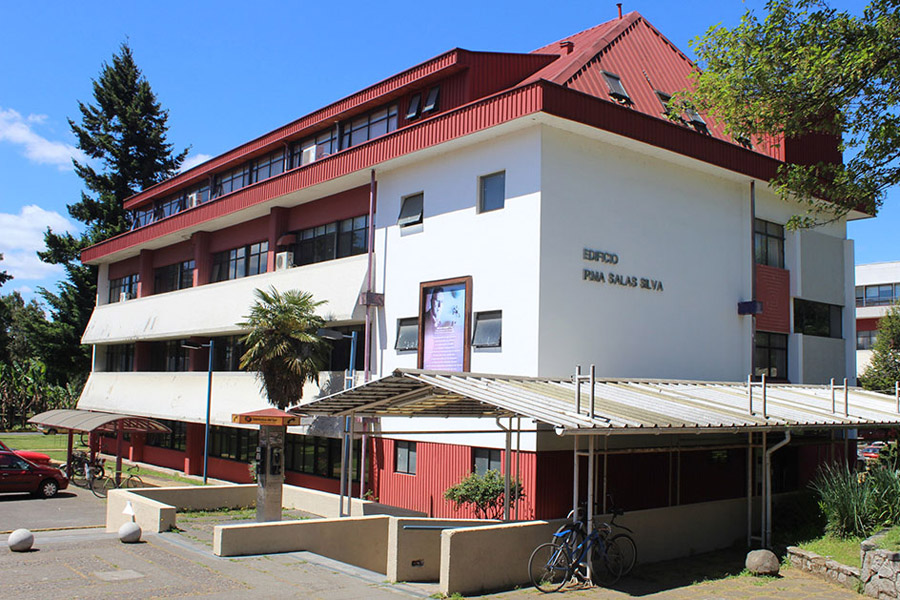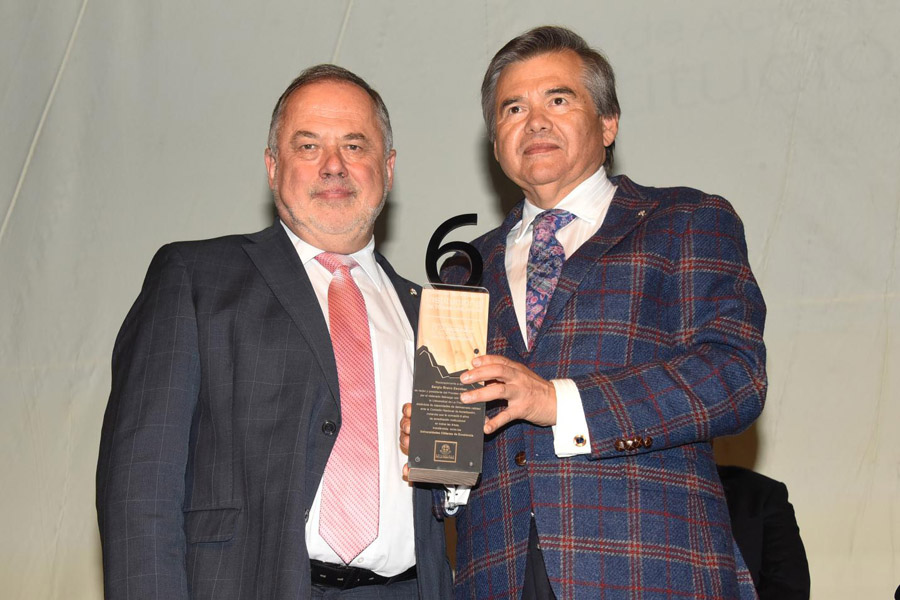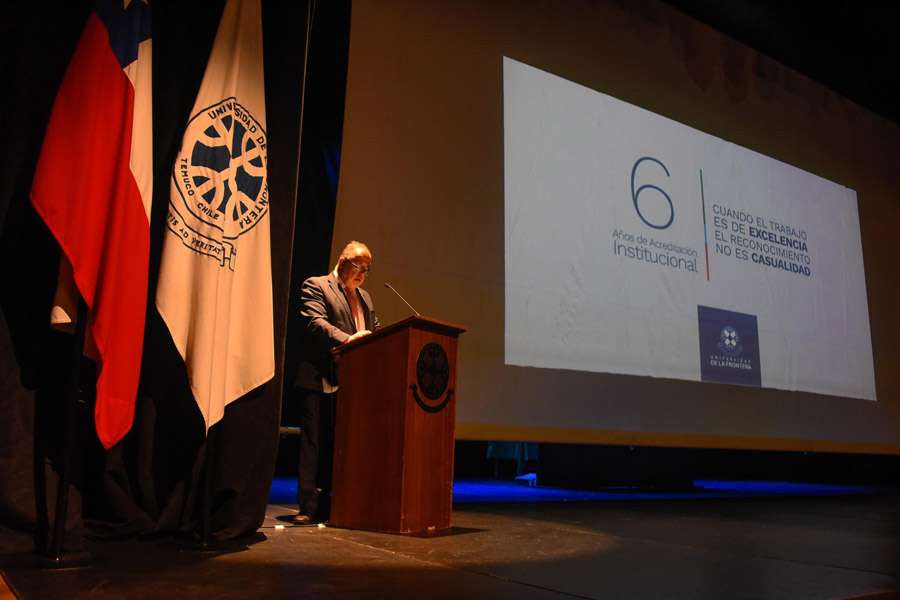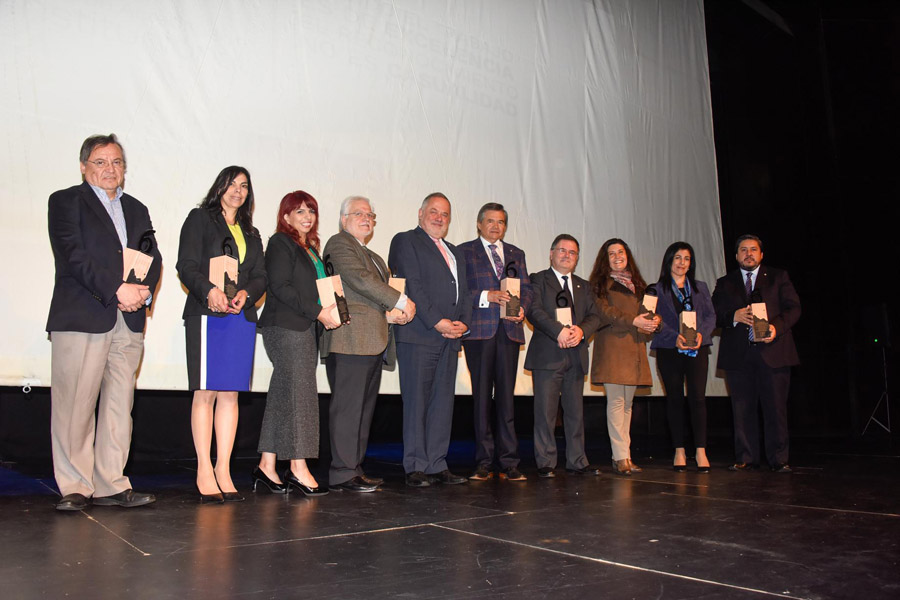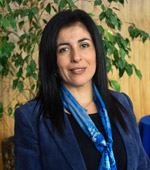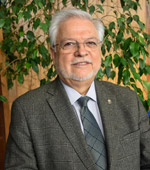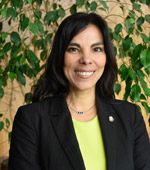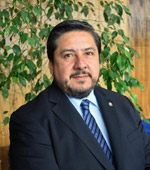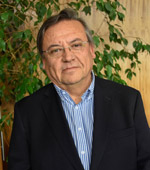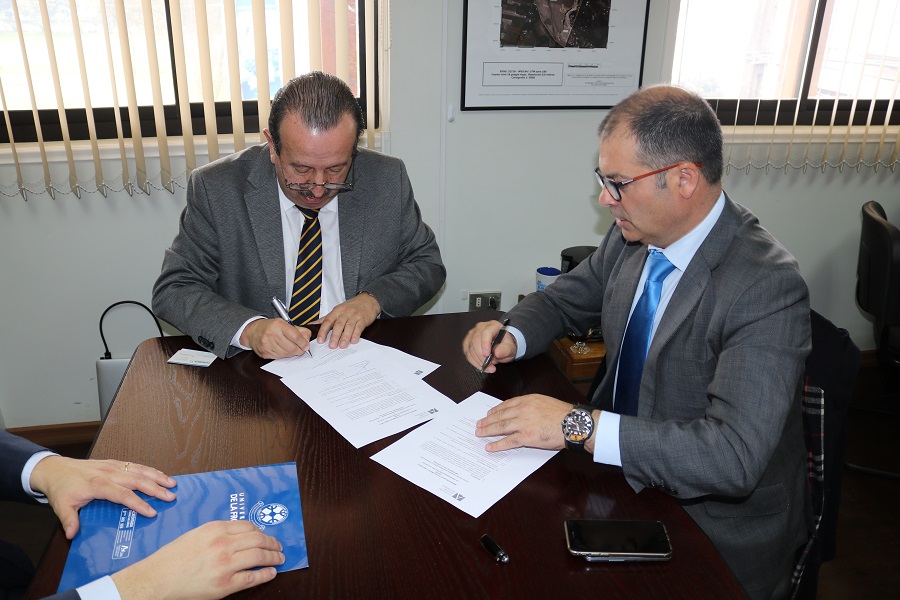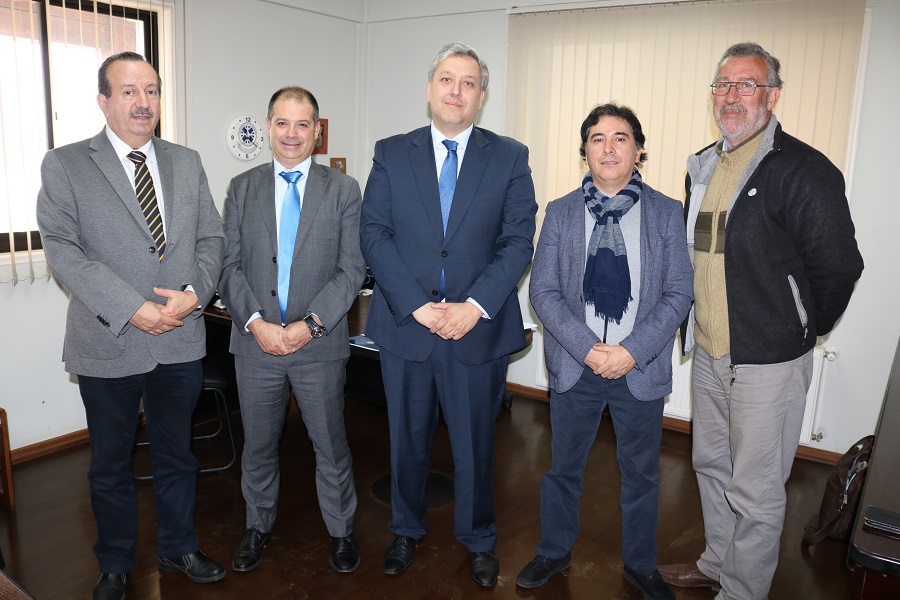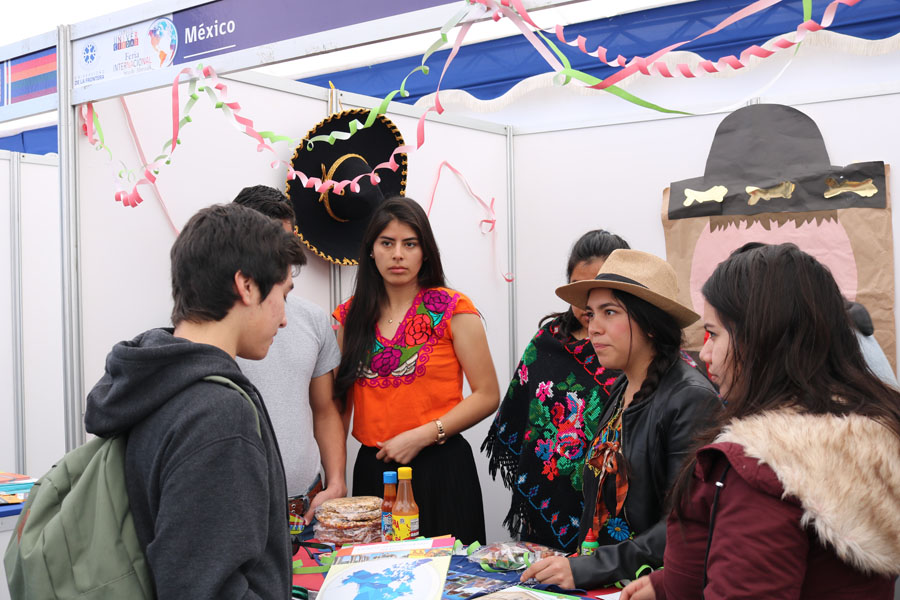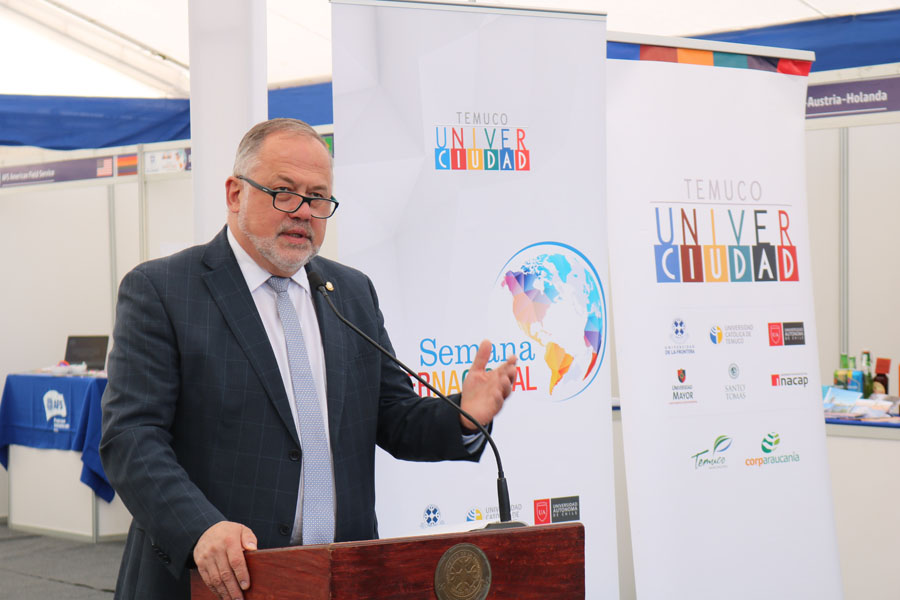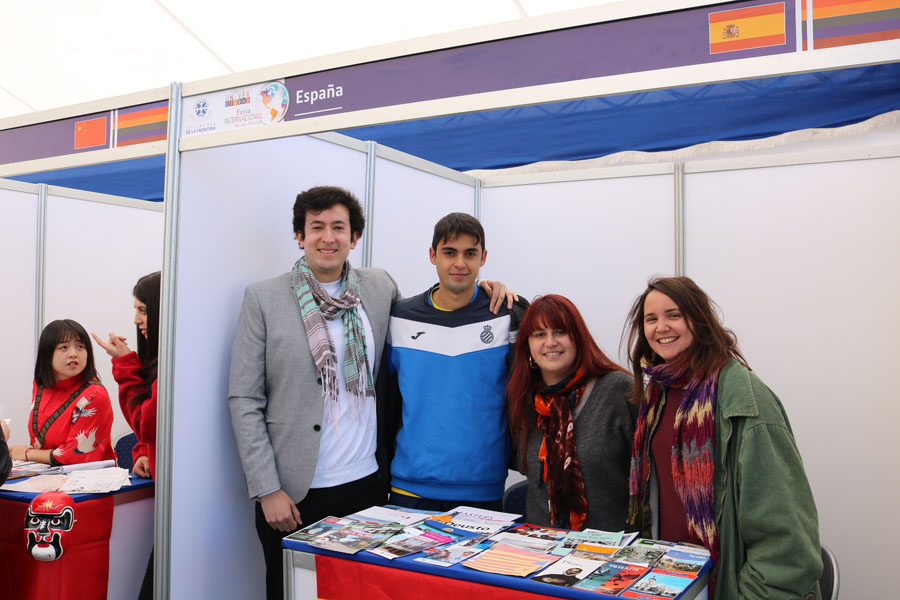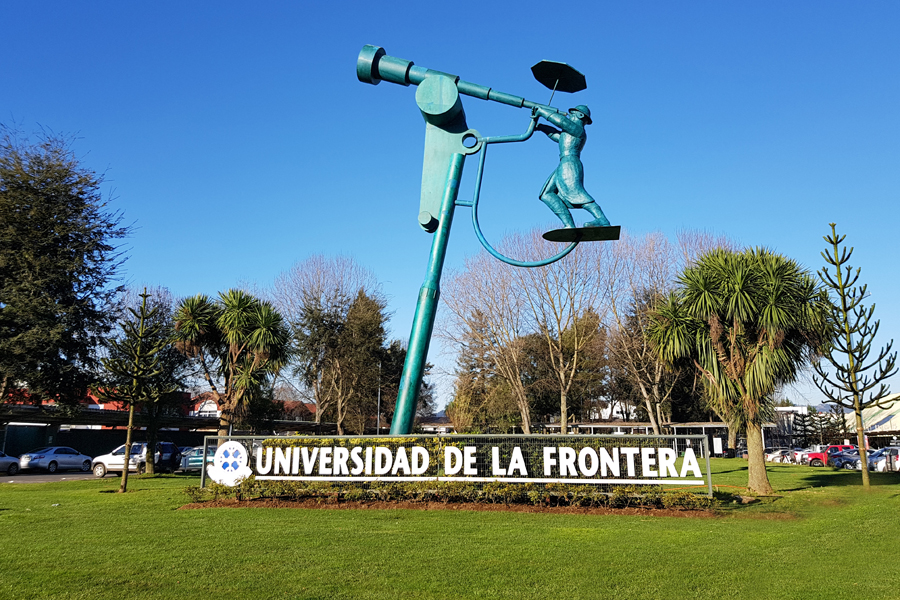|
The result of the project is the “UFRUG Magazine” that combines cultural aspects of Chile and the Netherlands under the motto “Unity in Adversity”. |
The UFRUG Magazine is the result of an educative telecollaboration Project between second-year students in European Languages and Cultures at the University of Groningen (UG) in the Netherlands, and freshmen students in Journalism at the Universidad de La Frontera (UFRO). ENVOIE (Enabling Virtual Online International Exchange) is an initiative for virtual exchange created by the University of Groningen in order to share collaboration experiences that are supported by technology and research between students of different cultures and who are geographically separated. The UFRO joint the program through the undergraduate program in Journalism. The aim of the project is to create a product together that has to do with the students´ subjects and in which they would have to bring their cultural and disciplinary perspectives to bear. During eight weeks, the students of both universities have been working online and autonomously, using digital communication tools for collaborative editing of journalistic texts. UFRUG MAGAZINE The participants in this first version are freshmen students in Journalism and Social Communication at the UFRO, students of the “Bases of Social Science” class taught by Dr. Carlos del Valle, and students of the “Spanish Literature and Culture I: Cultural Representations of the Hispanic World” class of the undergraduate program European Languages and Cultures at the University of Groningen. They formed an inter-university group that is focused on the creation of this multimodal digital magazine that treats intercultural and interdisciplinary issues of journalism and literature. The topics of the articles are for example ethnic conflicts, feminism, the society and culture. These topics have been proposed by the students themselves under the motto “Unity in Adversity” and it has been a learning experience the students value in a positive way. EXPERIENCE “We are addressing indigenous conflicts in Spain, Australia and Chile and compare the points of view of the Latin-American and European society. In each country, there are conflicts regarding indigenous people, but in some parts they are confronted in a more violent way and in others in a more democratic way,” Sebastián Neira, who is an UFRO student and developed the article “Marginality in the world. The situation from a global point of view: what do the Catalonian, Mapuche and Aboriginal people have in common?”, stated. The UFRO student Catalina Sánchez Hidalgo said: “As a work group, we draw on the customs and cultures of our home countries. It was a great experience. In Chile, we got to know the important dates of the Netherlands and there, they were able to get to know interesting aspects of our country.” Josefina Márquez Correa, who wrote the article “The feminine conquest”, felt that this initiative was enriching and confirmed: “The aim of this article was to compare the reality of women in Chile and the Netherlands by choosing important persons of both countries. The main difference is that the discussion about the role of women is more developed in the Netherlands than in Chile. In 1980, Chile discussed aspects that they had already discussed in the year 1900 in the Netherlands.” Gerdientje Oggel, academic of the Department of European Languages and Cultures of the Faculty of Arts at the University of Groningen, commented that the main challenge of this activity is to guarantee a balanced collaboration between the students. “Although we obtained good results, we have not been able yet to overcome the challenge of including the learning objectives of the different subjects into the product. We hope that the research and training offered by European initiatives like this one will help to improve the main challenges of virtual exchange,” Gerdientje Oggel said. The Chilean organizer of this project, Dr. Carlos del Valle, director of the doctoral program in Communication, pointed out that international networks are normally not present in undergraduate education. This is why this experience has been that important. “On the one hand, because of the different intercultural contexts, and on the other hand, because of the group work, especially when it comes to negotiate the interests and, in this case, the topics to cover and the language.” At the same time, the director of the undergraduate program in Journalism and Social Communication, Alvaro Cuminao, commented that this collaborative work aims at the development of strategies to use technologies in benefit and for the construction of adequate information at the moment of communicating.”
|
|
Academics, professionals, administrative staff, students and graduates were once again part of a great achievement: today, the UFRO is the only regional state university that is accredited for 6 years in all compulsory areas – Undergraduate Teaching, Research, Postgraduate Teaching, Institutional Management and Outreach and Community Engagement. |
“You reach your goals through efforts, and success is the sum of small efforts that have been repeated day by day. And thanks to that, to the joint work and the efforts from all of you, today, the Universidad de La Frontera is the first regional state university in Chile that achieved to be accredited for 6 years according to the National Accreditation Commission (CNA),” the rector, Dr. Eduardo Hebel, said at the ceremony for celebration of this institutional accreditation at the Aula Magna.
The objective of the ceremony for celebration of the institutional accreditation was to cherish the efforts, work and perseverance of a huge number of people, academics, professionals, administrative staff, students and graduates by acknowledging the ones who led the different committees and were able to address the strengths and weaknesses of this institution with a collaborative and rigorous spirit, and the capability of listening. This institutional acknowledgement was given to Hernán Fuentes, coordinator of the subcommittee for Institutional Management; Ana Moraga of the subcommittee for Undergraduate Teaching; Dr. Paula Cartes of the subcommittee for Research; Dr. Juan Carlos Parra of the subcommittee for Postgraduate Teaching and Dr. Rubén Leal of the subcommittee for Outreach and Community Engagement. Another acknowledgement went to the ones who also played a key role in this process by carrying out the Self-Assessment Report, as well as the process of socialization with the university community: Dr. Ricardo Herrera, director of the Institutional Analysis and Development Office; Carola Espinoza, director of the Communications Office and Dr. Martha Ramírez, coordinator of the Institutional Accreditation Process. Also Sergio Bravo, the former rector of the Universidad de La Frontera, was acknowledged for his leadership in this process. “This is an achievement of the whole university community. It is the dream of a university that wants academic success and therefore, we are very proud and thankful for the work that has been done, especially during 2017 and 2018. This is the result of responsible work carried out by a solid academic body that has taken the university beyond our national borders. We do have good international relations and that guarantees that the students who come to our establishment will get a training of excellence,” the former rector said.
 Written by: Pamela Carrasco Written by: Pamela CarrascoCommunications Office |
|
This strategic alliance plans modalities for student exchange and possible double-graduation programs. |
With a clear international outlook and an increased number of foreign students, the European University of the Atlantic in Spain is the most recent institution that established a Cooperation Agreement with the Faculty of Agricultural and Forestry Science of the Universidad de La Frontera. The European University of the Atlantic is located in Santander in the north of Spain and has three faculties, more than 2 thousand undergraduate students and about 5 thousand postgraduate students. The objective of this agreement with the UFRO, through the Faculty of Agricultural and Forestry Science, is to strengthen the exchange of students in related fields and the elaboration of a double degree program. Apart from that, it also considers the development of academic and professional programs, the exchange of publications on research reports and the exchange of academic staff and specialists in the fields of their academic, research and/or professional competencies. “We are very enthusiastic about students coming to study at our institution and students from our institution going to study at the UFRO or even getting a double degree. The objective is to be linked between universities and to deepen in possible ways of cooperation, projects, or R&D&I”, Rubén Calderón Iglesias, rector of the European University of the Atlantic, said. At the moment, both higher education institutions have to work on the analysis of structure equivalence of undergraduate, master´s and doctoral programs. All that with the aim of reaching a more precise and concrete partnership. One of the key factors in the draft for this cooperation was the Ibero-American University Foundation whose director, Pablo Eisendecher, was present at the signing of the agreement. “It is very important for us that the number of foreign students is as high as possible and that they come from as many countries as possible. The idea is to create cross-disciplinary skills”, Calderón added. The European University of the Atlantic was founded in 2012 and offers four programs that are oriented towards the field of food science. One of them is the program in Engineering of Food and Agriculture Industries, from which this cooperation with the Universidad de la Frontera started. “As a faculty we keep moving towards internationalization and we are strongly convinced that this is the way to go since we have been able to confirm the results, especially regarding our undergraduate programs,” Rodolfo Pihán, the dean of the Faculty of Agricultural and Forestry Science, explained.
 Written by: Sergio Valenzuela Written by: Sergio ValenzuelaCommunications Office |
|
Within the “International Week”, organized by UniverCiudad, the UFRO received different foreign agencies and universities in order to present their academic offer and programs to strengthen student mobility. |
The possibility of spending a semester abroad is definitely an enriching experience that makes a difference in the training of university students, as well as in their personal development. Therefore, being aware of the benefits of student mobility, the alliance of regional universities called UniverCiudad (UniverCity) Temuco started the “International Week” last Monday at the Campus of the Universidad de La Frontera with the “Study Abroad” Fair, which was organized by the International Affairs Office and the Student Mobility Office. It was the third version of the “Study Abroad” Fair that took place on Monday, 22nd of October, with the objective of increasing the number of students who go to other countries. The Fair brought more than a dozen international universities and agencies for exchange from the USA, Spain, France, Belgium, China, Mexico and other countries together to show the students the different opportunities to study abroad. The Fair was inaugurated by the Rector of the UFRO, Dr. Eduardo Hebel Weiss, who emphasized the need to seek for the internationalization of this institution. “The interaction with students of different countries is an enrichment for everyone, from a personal, ethical, moral and value-based point of view. Therefore, student exchange is very important for the comparison of educational systems, curricula, the student-teacher relationship and that this information is transmitted, because internationalization is a motive for change,” Hebel said. The head of the UFRO National and International Student Mobility Office, Antonia Espinoza, also shared this opinion and specified that this higher education institution has a great index of student mobility, with high numbers in applications for scholarships. Apart from that, at the regional level, the UFRO is the institution which sent the most undergraduate students to other countries and also received 75 foreign students in the first semester of 2018. “Our work of internationalization as a university is very important, since we offer opportunities of growth to our students. We want to show them the advantages of studying abroad, getting to know other communities and universities for the internationalization of everyone,” she commented. One example for that is Stefan Valentin, a student in Mathematics Education at the Universidad de La Frontera who spent a semester at the Universidad de Huelva in Spain in 2017. “It was a thorough experience that gave me the opportunity to get to know other ways of life and cultures and to join a university at which I felt very welcome. I was also able to get to know new contents my study program does not offer, such as the inclusive education class that has become an important issue for this country,” he said.  Written by: Cristián Arriagada Written by: Cristián ArriagadaCommunications Office |
|
It is a milestone in the history of accreditation for regional state universities and a mayor success for the Araucanía Region. |
The Universidad de La Frontera is accredited for 6 years and achieved to enter the group of universities of excellence, a category that includes all institutions that are accredited for 6 or 7 years.  Written by: Communications Office Written by: Communications Office |





